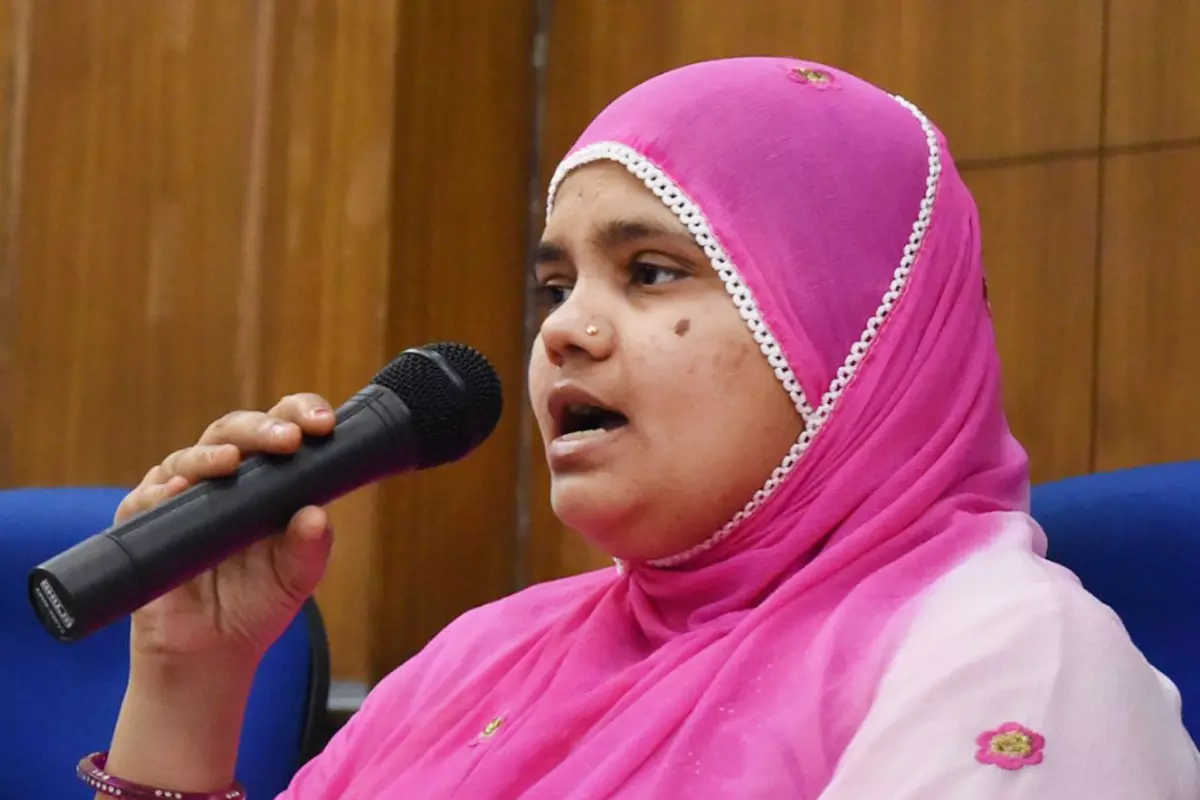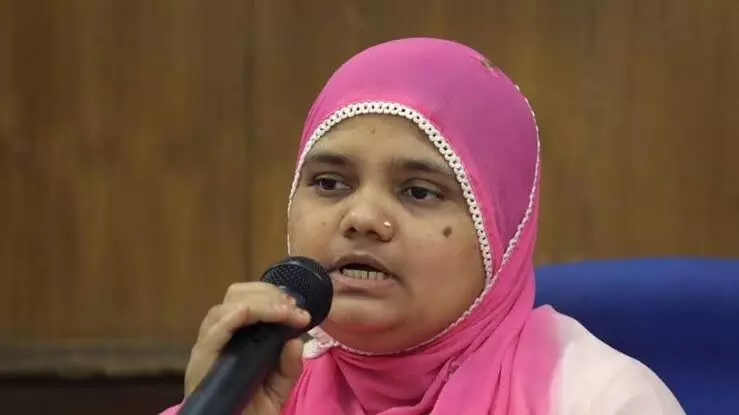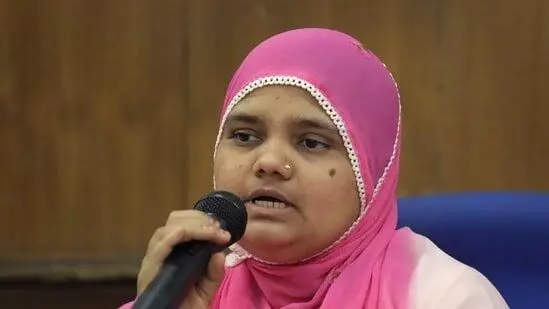
'Achhe din' for criminals
text_fieldsBilkis Bano (file photo)
Jaswant Chaturbhai Nai, Govindbhai Nai, Shaileshbhai Bhatt, Radheshyam Shah, Bipin Chandra Joshi, Keshuhai Vadaniya, Pradeep Mordhia, Rajibhai Soni, Mitesh Bhatt, and Ramesh Chandana: these are the names of the human demons who were convicted for gang-raping a five-month pregnant woman, killing her three-year-old baby by thrashing it on the ground, and murdering a group of seven people including a one-day-old baby. A group of women and children were escaping a violent gang on March 3, 2002, in the village of Randhikapur in the Dahod district of Gujarat. They were stripped of their clothes, raped, and killed. One of those women, Bilkis Bano, who was five months pregnant at the time, was left behind by the attackers because they thought they had succeeded in killing her, like her companions. She regained consciousness only three hours after the murderers left the scene. When she opened her eyes, she had no clothes on her body and her child was dead.
Despite being a simple and ordinary woman, Bano did not give up. She fought to bring those who massacred her family to justice. Back then, evil forces were ruling the state of Gujarat and such a fight was unimaginable. Bilkis Bano refused to be a victim. She transformed from a victim to a survivor and then to a warrior. Her battle for justice resulted in the life imprisonment of 11 of her attackers. But today those 11 convicts are being welcomed by people on the streets of Gujarat. People are organising celebrations in their honour. They are serving sweets to share the happiness of their freedom from prison. And leaders of several organisations are lining up vying with one another to touch their feet.
When Gujarat government acquitted all 11 as part of the Azadi Ka Amrit Mahotsav and celebrating the 75th Independence Day of India, it is notable that they were received at the office of Deendayal Upadhyaya Trust. Tomorrow, children of India will have to read the biographies of these 11 convicts in their textbooks which hail them as great freedom fighters. It would not be surprising if such a thing happened in the country where Nathuram Godse's picture is being carried for the Independence Day rally. Bilkis Bano case has been conducted under the supervision of the Supreme Court which even directed the transfer of the case away from Gujarat to Maharashtra, since the situation in Gujarat was not conducive for even the functioning of courts. Bano faced only obstacles at every stage of her fight for justice - starting from filing the complaint and lodging the FIR to the conviction of her attackers. It was the determination of Bilkis Banu, her husband Yakub Rasool, and the human rights activists who stood with them that led to justice.
The Bilkis Banu case stands out because the vast majority of the complaints related to the Gujarat Genocide remain with no hope of ever being solved. In the 2002 incident, over 2000 people were massacred, the honour of several women was violated, hundreds of people went missing, and property worth crores were burnt. Bano fought hard for justice and now that very justice system is being crippled and mocked. It is not surprising that something like this happens when the country is ruled by those who proudly carry the infamy of the Gujarat Genocide. On the one hand, Teesta Setalvad, M.B. Sreekumar, and Sanjay Bhatt - who worked to bring the heinous criminals who massacred people to justice - are rotting in jail. On the other, rapists and murderers are being released and celebrated. Perhaps time for us to realise that all this has come to constitute our great Indian culture.
The news coming from Gujarat should shock all fair-minded people. However, we do not see such shock from our political leaders or civil society. Even the Muslim leadership is standing numb. True, the country is in a state of terrible numbness. But that blanket of numbness will one day be lifted. There will be cries for justice. Because justice cannot be imprisoned for ever.








